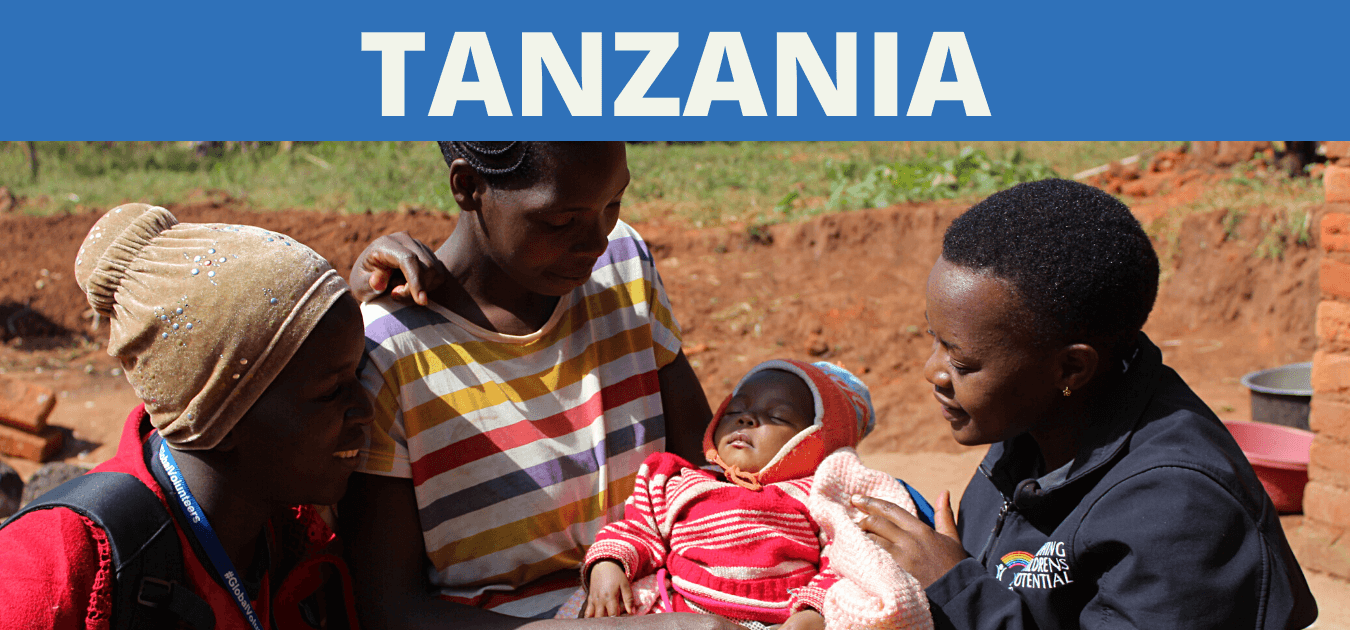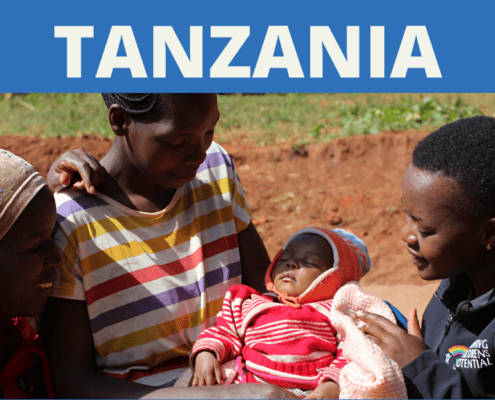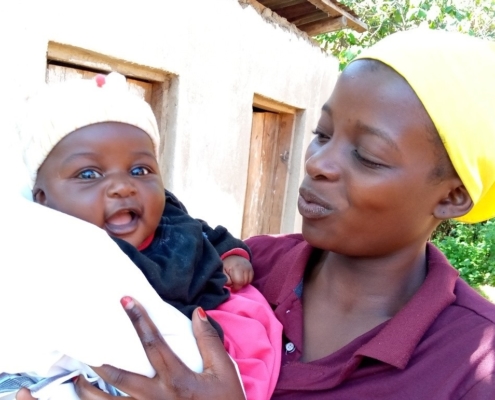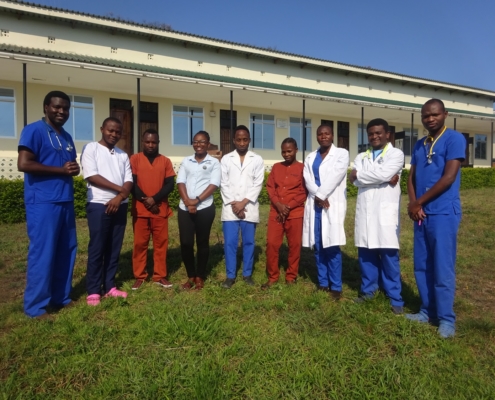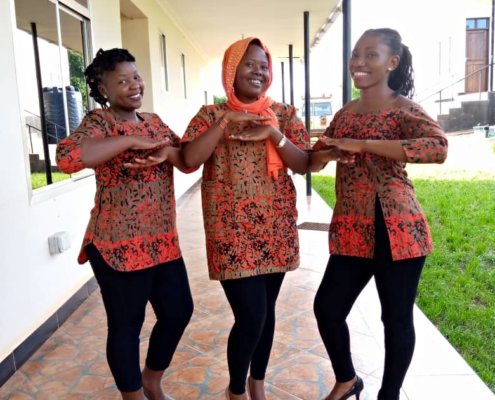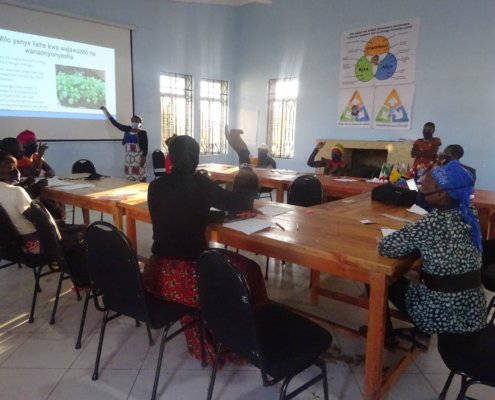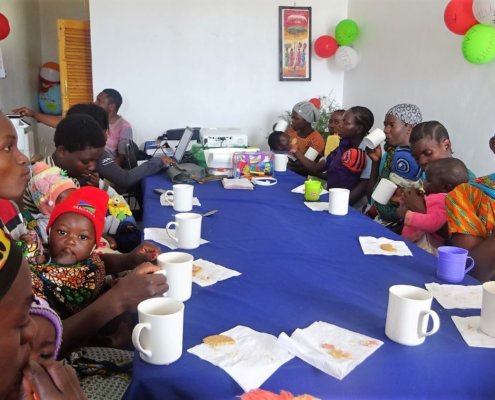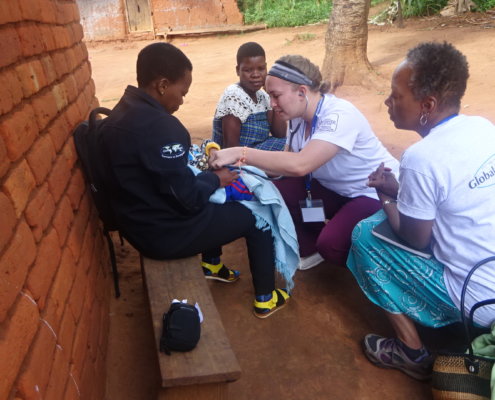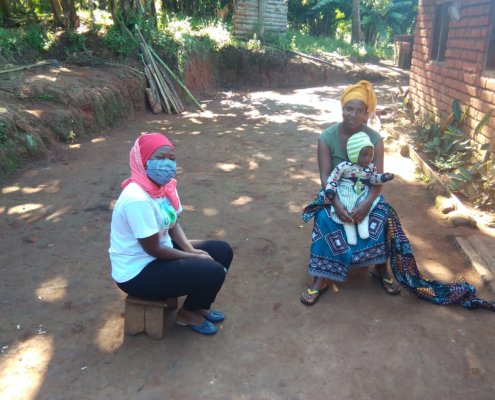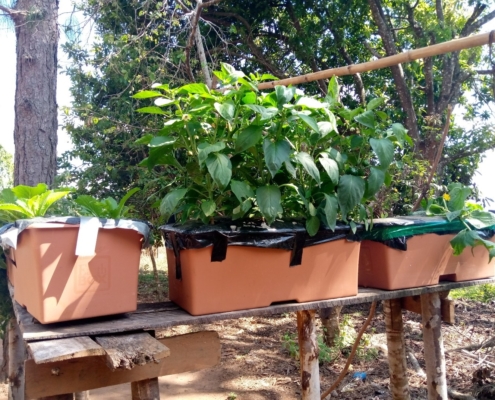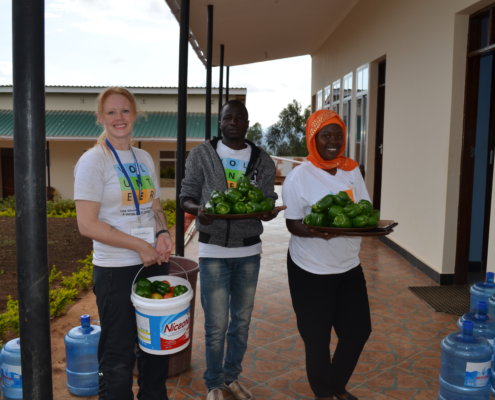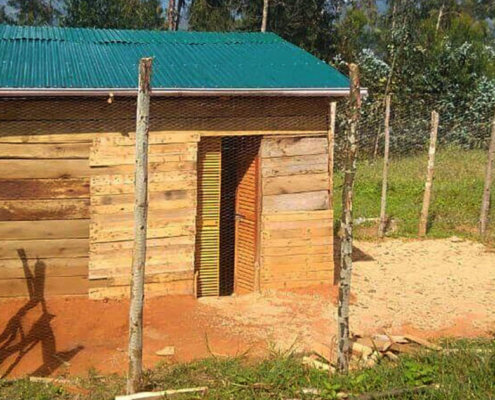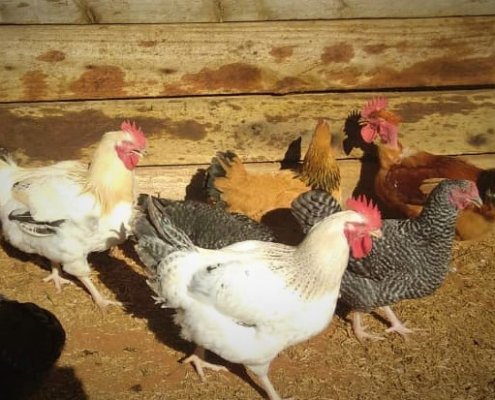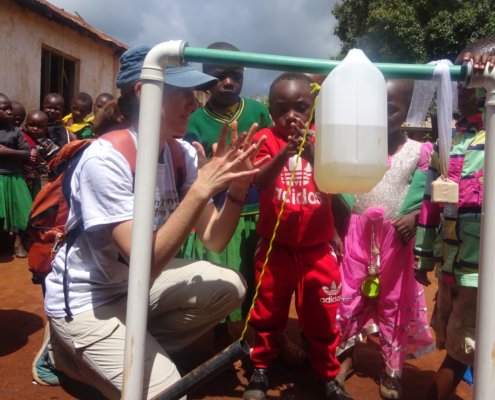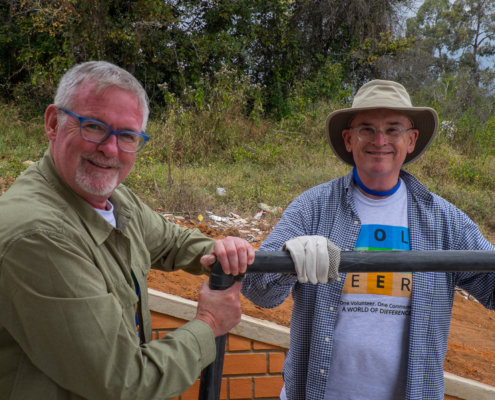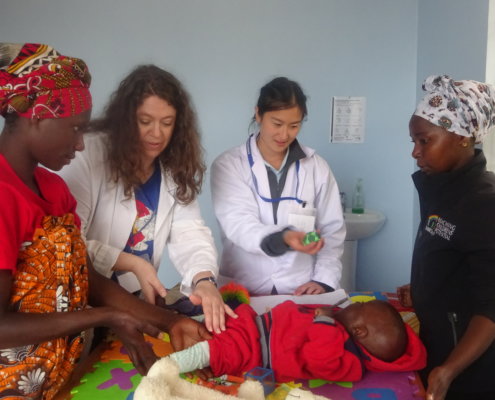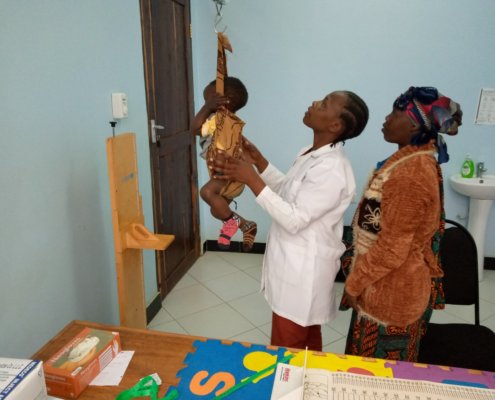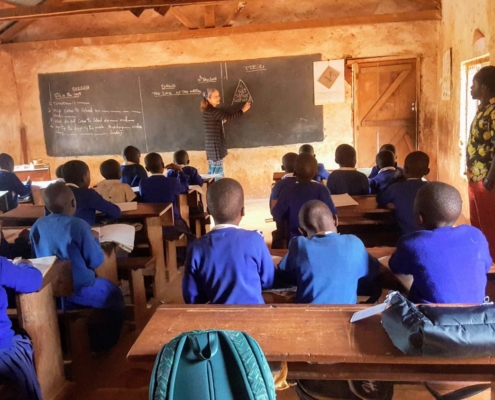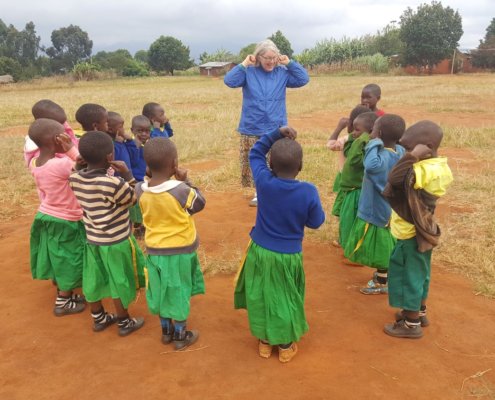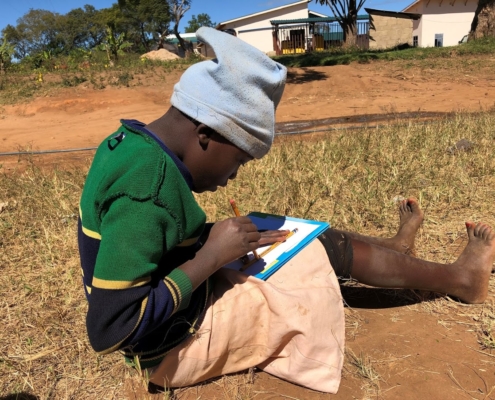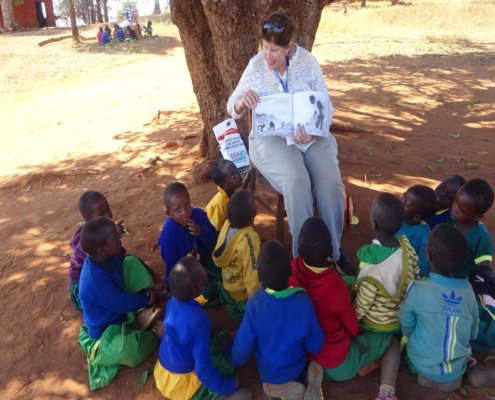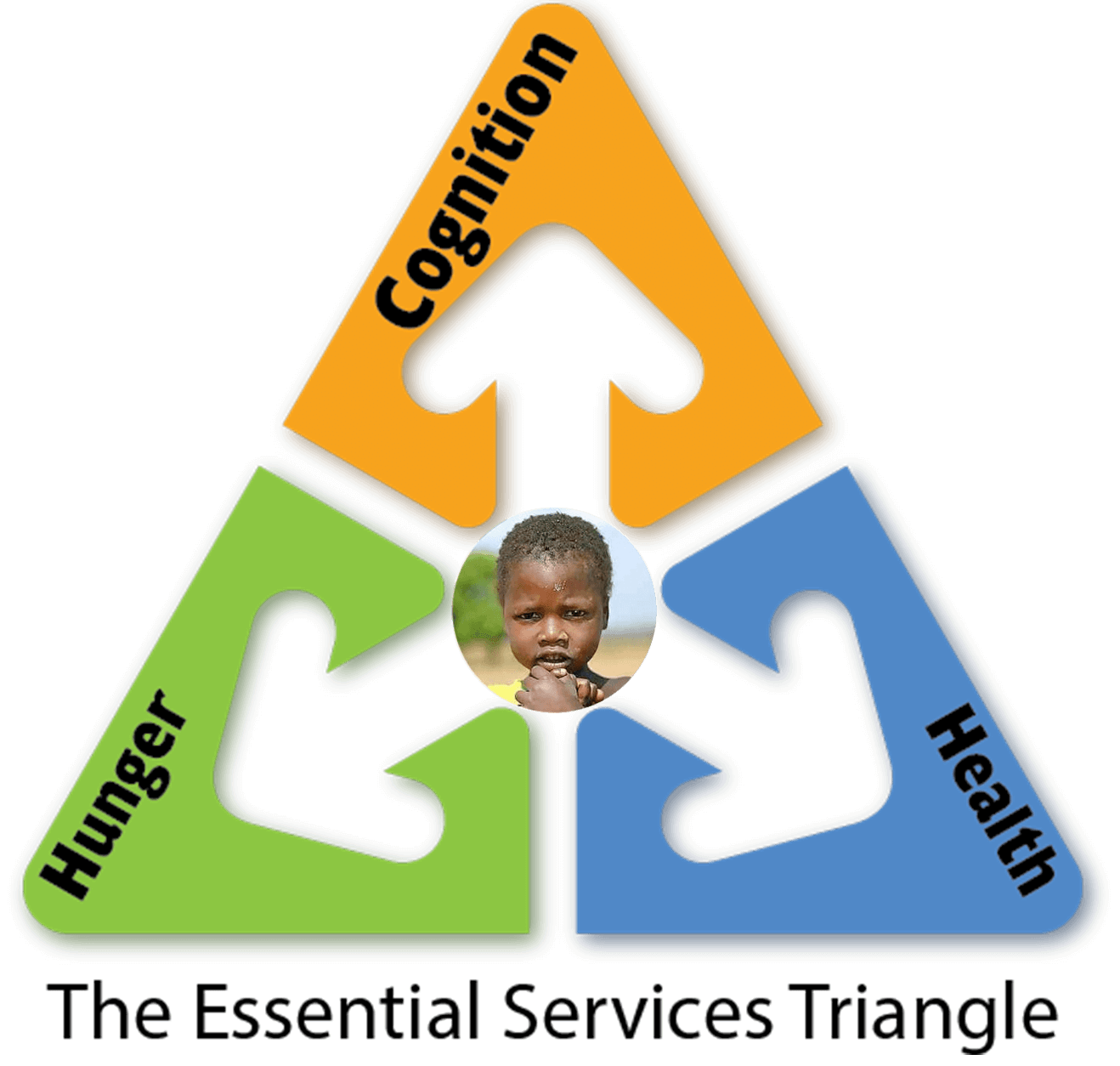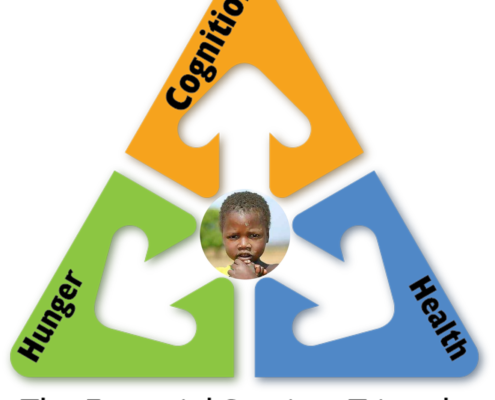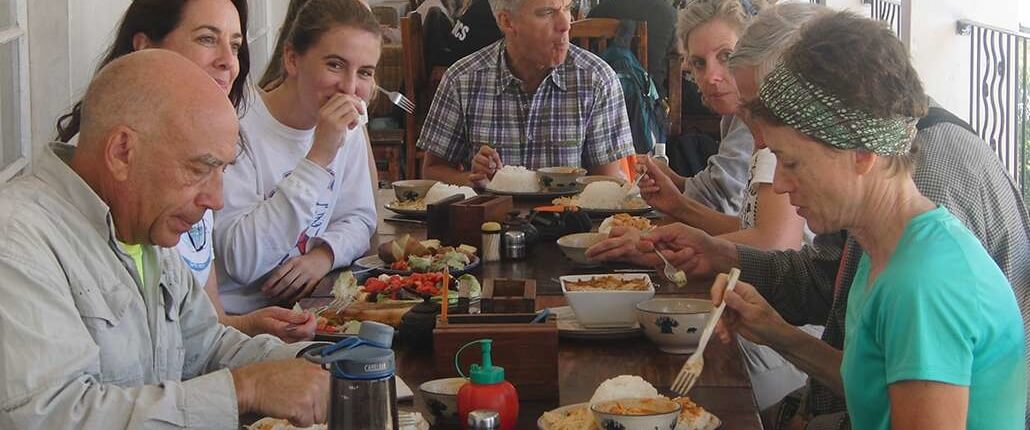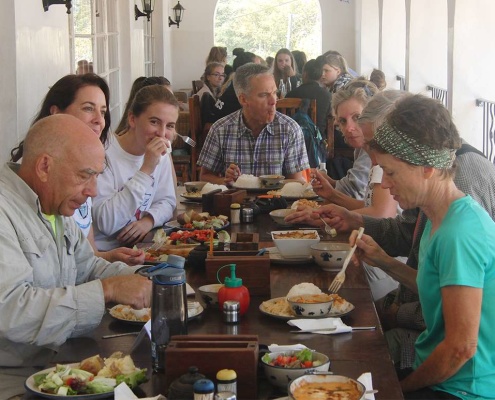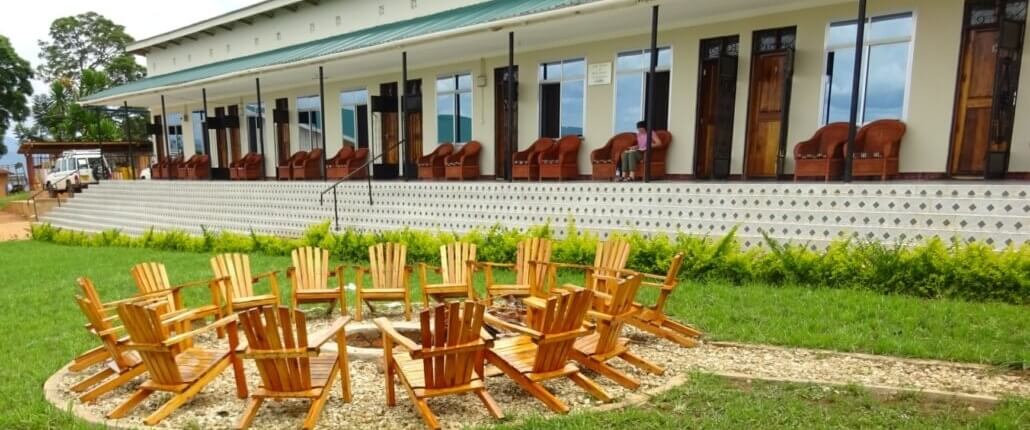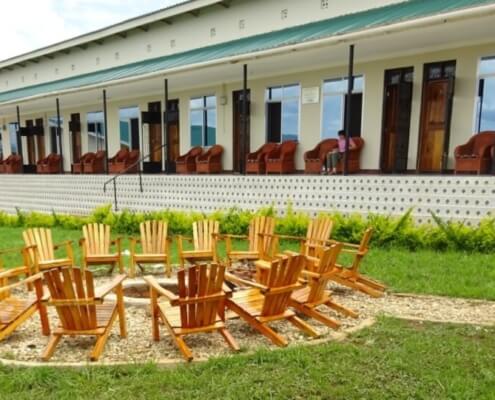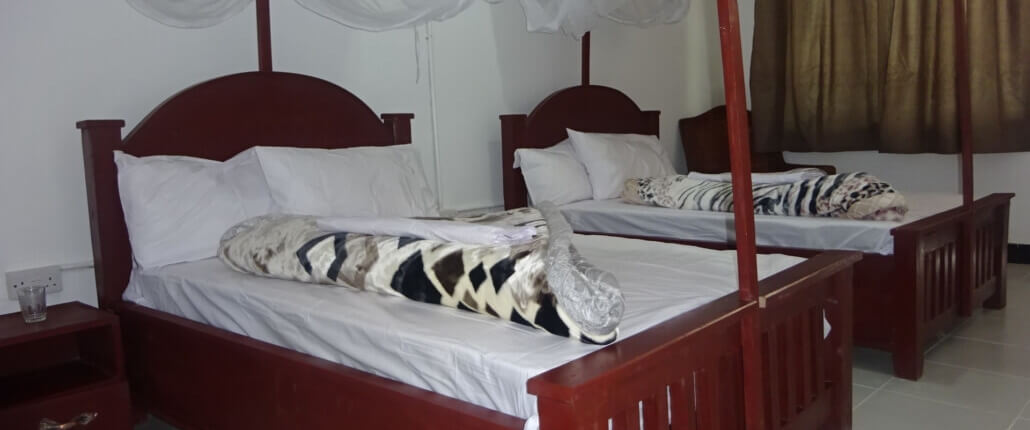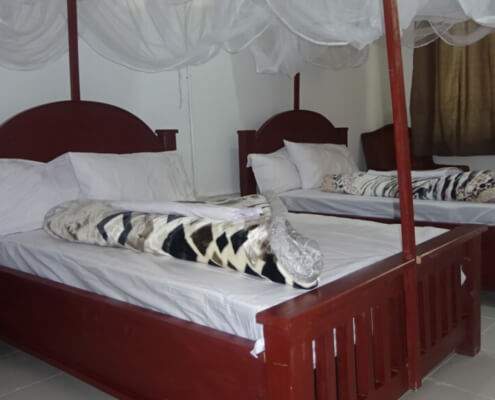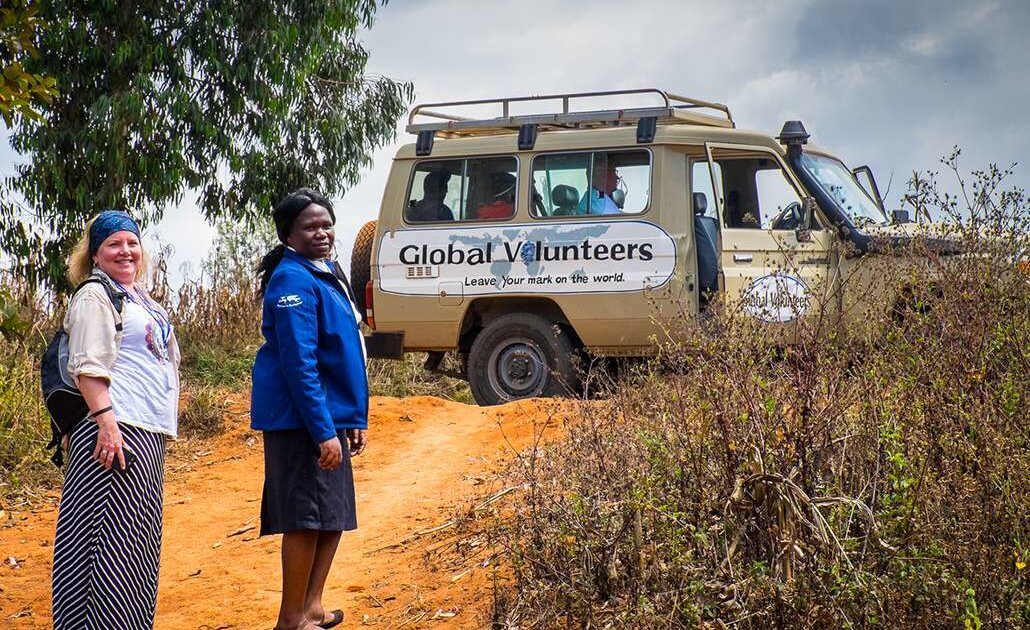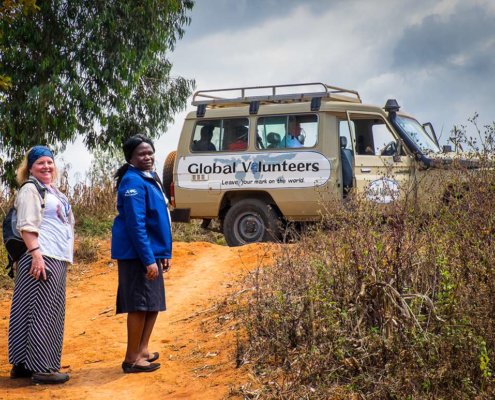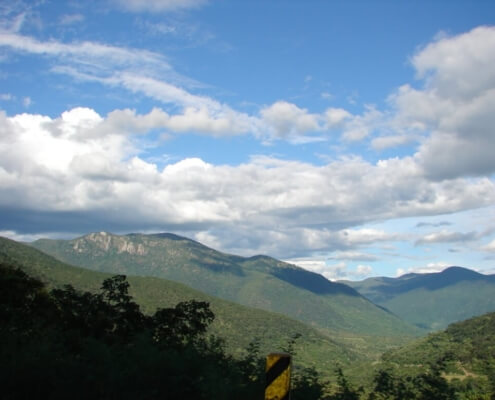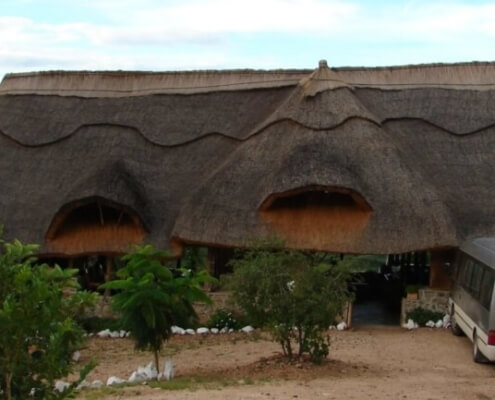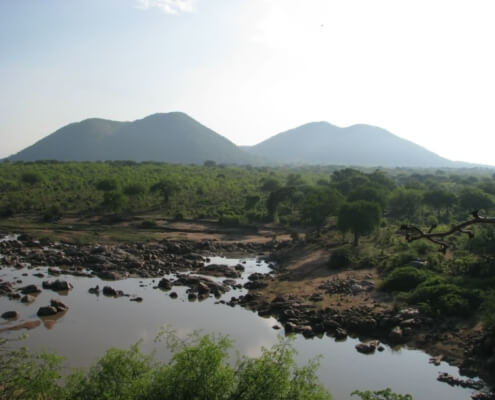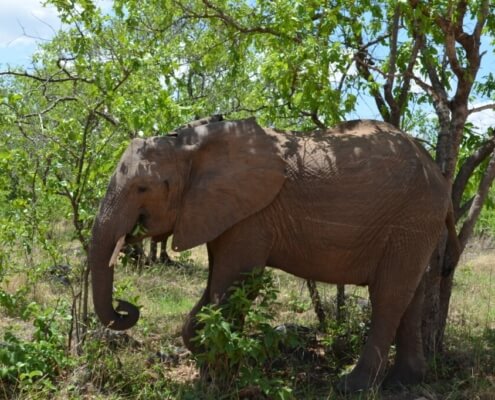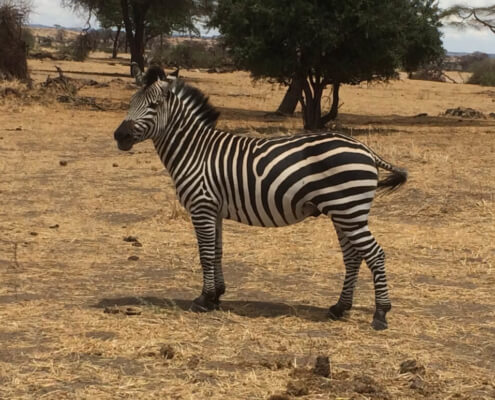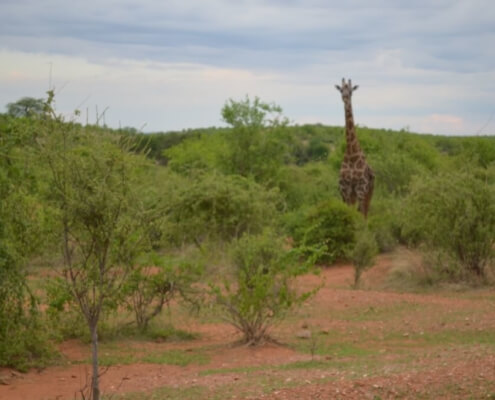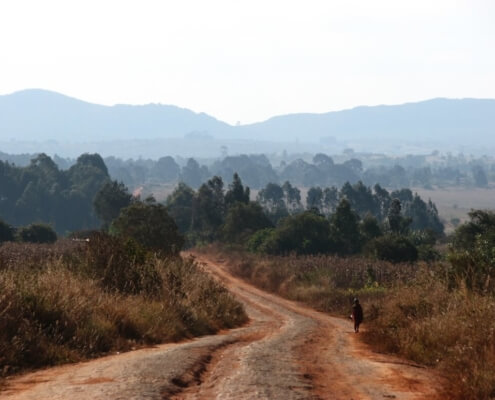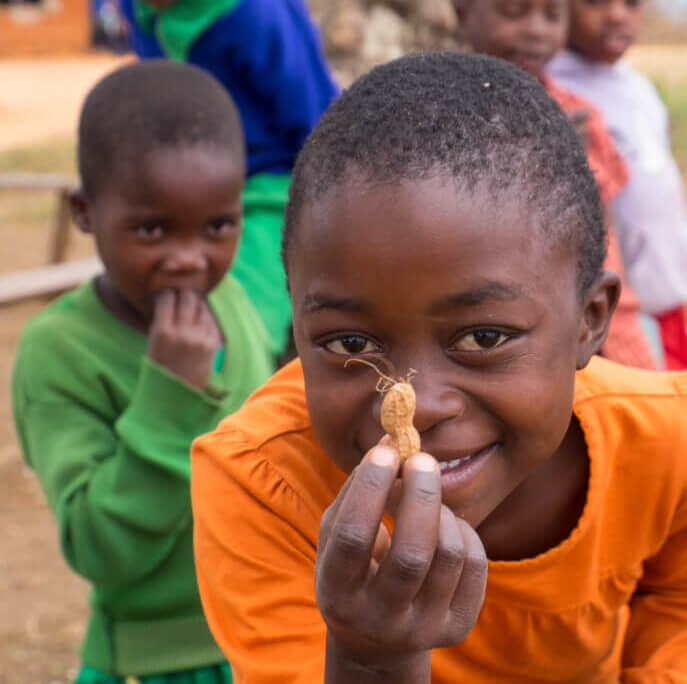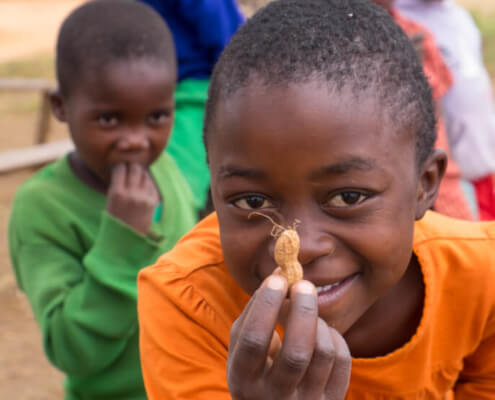Serving in Tanzania
Tanzania is the majestic Mount Kilimanjaro, the only snow-capped mountain in Africa; the windswept Serengeti plain teeming with wildebeest, gazelle, and antelope; warm tropical Indian Ocean beaches; Gombe National Park where Jane Goodall studied chimpanzees; the exotic island of Zanzibar; and the banks of Lake Tanganyika where Henry Stanley spoke those famous words, “Dr. Livingstone, I presume.” But, above all, Tanzania is its people and unique culture – a way of life that still values the ties that link parent to child, friend to friend, family to family, village to village.
If you get off the beaten track and follow the dusty, bumpy East African roads, you will find traditional villages where life is lived in startling simplicity. Entire communities celebrate a birth, applaud a youngster’s passage into adulthood, cheer a new married couple, and mourn a death. Here you will experience a way of life vastly different from your own, help a community struggling to care for its children, and hopefully learn more about yourself along the way.
The needs are great in rural Tanzania. Life is a hard, day-to-day struggle to survive off the land. Medical supplies are inadequate, food and nutrition are too often insufficient, and access to quality education is limited. The work of Global Volunteers in Tanzania, through the help of our volunteers and staff, supports these communities in achieving a better quality of life.
Ukwega Ward – Global Volunteers has expanded our service to 5 small rural villages of Ukwega Ward with a population of around 5,000. It is located in the highlands of south central Tanzania, about a two-hour drive from Iringa. Here, Global Volunteers is initiating a demonstration program that will allow all village children to reach their potential by eliminating stunting. Stunting is a debilitating condition that robs the future from 25% of all children on the planet. In rural Tanzania, nearly 50% of children are stunted.
Global Volunteers is taking the lead in prevention — and eventually elimination — of childhood stunting, starting in Ukwega Ward and expanding throughout the Iringa region. In partnership with the Evangelical Lutheran Church in Tanzania (ELCT) and in cooperation with the Tanzania Ministry of Health, Community Development, and Children, we are carrying out a child-focused, holistic effort beginning with pregnancy and continuing through the 18th birthday. By providing parents and caregivers the necessary knowledge and appropriate technology, and the support and encouragement to apply the knowledge and adopt the technology, the devastating effects of stunting can be prevented, and eventually, eliminated.
Please join us on this groundbreaking demonstration project to help children in Tanzania reach their full potential.
Community Partner & Work Projects
Since 1987, Global Volunteers has worked at the invitation of and in partnership with the ELCT represented by Bishop Emeritus Owdenburg Mdegella. Bishop Mdegella is a remarkable man – the youngest Lutheran bishop in the world at age 35 and father of seven children, two of whom he and his wife adopted. He speaks five languages and as many dialects. Born and raised in Ipalamwa and a first-grade student at age ten, he now holds a Ph.D., having also earned two master’s degrees, one from a California university. Although Global Volunteers is a nonsectarian organization, we work with local organizations which are engaged in human and economic development and in Tanzania that is most often faith-based organizations.
“Nothing is as important as education for young minds,” Mdegella asserts. “Our youth need a solid education as a foundation if they are to contribute to our community and our country.” That is why he invited Global Volunteers to serve in rural Tanzanian villages 30 years ago.
“Breathe deeply, inhale the clear mountain air, and memorize the vivid sights and village sounds around you. Begin to weave a map that joins the paths you took while here, with the trails you will follow in the future. In this way, you will create a rich fabric that will warm your spirits throughout the seasons of your life.”
~ Diane Lynch, Global Volunteer in Tanzania
At the invitation of village leaders, Global Volunteers engages short-term volunteers (one to three weeks) to help conduct village-based Reaching Children’s Potential (RCP) programs in Tanzania. RCP programs are child-focused, holistic efforts that begin with pregnancy and continue through the 18th birthday. Volunteers serve in a variety of capacities from supporting pregnant women to teaching math and sciences to secondary school students. The RCP program is divided into four important parts:
- the first 1,000 days, from pregnancy through the second birthday;
- Food and nutrition;
- Health and hygiene; and
- Education from preschool through secondary school.
The first 1,000 days
The first 1,000 days are foundational and the most important time in all human life. It is essential that pregnant women and children receive sufficient food and nutrition, and are protected from infectious disease during these vital 1,000 days. In order for parents to be able to adequately provide for their children during this critical time, they need knowledge, appropriate technology, and support. Short-term volunteers help parents deliver essential services to their children. Volunteers are needed to:
- Conduct interactive workshops with pregnant women and parents of children two years and younger. These workshops provide knowledge and appropriate technology necessary so parents can ensure the health and well-being of their infants and toddlers. Workshops are conducted on a variety of topics related to food, nutrition, and disease prevention, e.g., staying healthy during pregnancy, breastfeeding, growing fruits and vegetables, preparing nutritious meals, washing hands with soap and water, etc.
- Accompany Global Volunteers’ local staff on weekly home visits. The primary purposes of the home visits are to:
- Help parents apply the new knowledge learned at the workshops, e.g., review nutrition, hygiene, and early childhood development guidelines; present information about available resources; etc.
- Demonstrate the use of appropriate technologies, e.g., container gardens, tippy taps, chicken coops, etc.
- Offer support and encouragement to parents so they can make the behavioral changes necessary to apply the knowledge and adopt the technologies.
- Show parents how to communicate with and stimulate their infants and toddlers.
- Care for young children at the RCP Center while their parents are attending workshops.
Food and nutrition
Food and nutrition are essential to all of us; however, in many rural villages both are in short supply. The primary staple in rural Tanzania is ugali, a dish made from corn flour. It is very filling, but when eaten on its own, it lacks sufficient nutrition. Everyone needs nutritious food and volunteers help local people provide this in a number of ways. Volunteers:
- Help assemble, plant, and harvest household container gardens – highly efficient, water conservative, and easy to use gardens in a box. Each box is approximately three-feet long by two-feet wide and two-feet deep. When used properly, these container gardens produce three to four times as many vegetables as the same amount of land a shovel-in-the-dirt garden produces. Moreover, they can sit on tables making planting and harvesting easier, and they do not require weeding. In this area of Tanzania, one box will produce enough vegetables for a year for one teen or adult, or two children.
- Work with students at the school garden planting, weeding, and harvesting.
- Explain the importance of nutrition to parents and students, and how to best ensure that they are getting sufficient nutrition.
- Teach parents and students how to prepare nutritious meals.
- Help construct and maintain chicken coops.
- Teach local people how to raise and care for chickens so they can benefit from the eggs and meat.
Health and hygiene
Preventative healthcare is the most valuable health service in a rural village. Exercising effective hygiene practices, preventing infectious disease, and understanding how to care for basic health needs are all vital to families in developing communities. Volunteers:
- Provide patient care, health screenings, and dental and eye exams at Global Volunteers’ Ipalamwa General Clinic.
- Care for pregnant women, and help ensure thriving pregnancies and healthy deliveries.
- Work alongside Tanzanian physicians, nurses, pharmacists, and lab techs.
- Help the clinic manager and administrative staff improve clinic procedures.
- Demonstrate proper hand washing and teeth brushing.
- Help assemble household hand washing stations so parents can ensure they and their children have access to appropriate hygiene.
- Teach basic healthcare from the text “Where There is No Doctor.”
- Offer health classes on HIV/AIDS, malaria, and other disease prevention
Education
The fourth part of the RCP program focuses on education which begins with preschool and continues through primary and secondary school. Volunteers are needed to:
- Assist with early childhood education for three to six-year-olds to help them get ready for primary and secondary school. The preschool in Ipalamwa (called kindergarten) has 100 plus students. Volunteers work with the children teaching English, colors, and numbers; playing games and sports; and reading stories aloud from children’s books. English is the language of instruction in Tanzania, so the earlier the children get exposed to the language, the better it is for their long-term development.
- Teach/tutor English, math, science, and health at the primary school.
- Professional educators tutor secondary students in math, biology, chemistry, physics, and physical geography.
- Provide conversational English language training – the international language of commerce, technology, and opportunity – to adults and students. In many countries like Tanzania, English can be a passport out of poverty.
- Teach computer literacy, e.g., Microsoft Word and Excel, to teachers and students.
- Construct, repair, and maintain classrooms. Those with experience in carpentry, painting, masonry, or plumbing can be of great assistance.
- Offer psychosocial support to children. Many of these kids live in challenging conditions, so volunteers provide love and nurturing – a smile, a hug, a Band-Aid for a scratched knee. Anyone who loves children will thoroughly enjoy working in the village schools and may well make a lasting difference in the arc of a child’s life.
As a member of a volunteer team, you will be a new and vital link in the “human chain” of Global Volunteers that serve in this spiritually rich but economically impoverished area of Tanzania. Through your help and that of all our volunteers, Global Volunteers strives, little by little, to assist developing communities achieve a better quality of life for families and children.
The Essential Services
At the center of community development is Global Volunteer’s Essential Services Triangle. These are the 12 essential services, prescribed by the United Nations, which every child needs to realize the fullness of their potential. Global Volunteers organizes these services into three major categories – Eradicating Hunger, Improving Health, and Enhancing Cognition.
HUNGER
- School and household gardens
- Child nutrition
- Micronutrient supplementation
- Improved stoves
HEALTH
- Health, nutrition, and hygiene education
- Malaria and dengue fever prevention
- Deworming
- HIV/AIDS education
COGNITION
- General education
- Promoting girls’ education
- Potable water and sanitation facilities
- Psychosocial support
Global Volunteers is committed to supporting our community partners in these 12 areas through the sustained, comprehensive assistance of an ongoing stream of short-term volunteers and direct project donations from volunteers and supporters worldwide. Our focus is on pregnant women and their children. Depending upon the needs of the host community and the community-based projects requested by local people, Global Volunteers helps deliver some or all of the 12 services. Every volunteer can help in one or more of these 12 interventions. As a short-term volunteer, you’re a vital component in helping families and local community organizations deliver these essential services to their children.
Service Program Logistics
Global Volunteers Tanzania Team Leader, Given Mlowe, leads all teams in Tanzania. In cooperation with our community partners, Given facilitates your team’s orientation, assists you in being fully engaged in your assigned work project(s), and manages all project-related logistical issues. She was born in Iringa and earned a Bachelor’s Degree in Family and Consumer Studies from Sokoine University of Agriculture in Morogoro. She has also served as a Care Giver at the RCP Program since 2021. Given will introduce you to the community, help acclimate you to the local culture, invite you to community events, and engage you in the day-to-day life of the community.
Meals
Three delicious meals a day are included in your service program fee. Meals are prepared by Global Volunteers staff using safe cooking methods that are acceptable to North Americans’ sometimes sensitive stomachs. The staff prepares meals combining local cuisine with American favorites. The daily diet consists of tropical fruits, vegetables, rice, eggs, ugali (a cornmeal dish), pork, and chicken. Tanzanian cuisine also includes chapatti (an East African bread) and many varieties of yams and African pumpkins. Purified water, coffee, and tea are always available. Desserts, soda, and alcoholic beverages are not included, but may be available for purchase.
Lodging
Living and volunteering in a rural East African village is both immensely exhilarating and enormously rewarding, especially now that we’ve removed the challenges associated with being “off the grid.” We’ve done this by constructing our own volunteer lodging facility. This new facility boasts spacious and comfortable double occupancy living units with Western-style private bathrooms, hot and cold water, electricity, and mosquito bed nets. Volunteers also have access to a kitchen and a meeting and dining room. Every effort has been made to ensure our volunteers’ comfort so that you can confidently go to work every day, including the addition of a lovely veranda with spectacular views of the lush verdant valley! Single occupancy rooms are available for an additional fee.
Transportation
All in-country ground transportation is included in your service program fee. The shortest flight route is to fly to Dar es Salaam (DAR) and then take a 60-minute flight to Iringa (IRI). Improvements in, and commercial plane accessibility to, the Iringa airport make traveling to rural Tanzania much more comfortable and less exhausting than the ten to 12-hour overland drive. There is one flight a day, and a Global Volunteers staff member will meet you and your fellow volunteers at the Iringa airport. You will then take the two-hour journey to Ipalamwa by van or Jeep. Along the way, you can take in the beautiful sights and sounds of the highlands of south-central Tanzania. Our staff will take you back to the Iringa airport on the final day of the service program. Note: transportation for weekend free time activities is not included, but can easily be arranged.
Program Mobility
Our program in Tanzania requires volunteers to be mobile for the following reason:
- Volunteers in Tanzania are transported in high clearance Jeeps and passenger vans, volunteers are required to be able to climb in and out of these vehicles unassisted.
- Volunteers need to be able to walk at least 0.5 miles on uneven, unpaved terrain and flat tiled surfaces around the village of Ipalamwa.
- Ipalamwa is in the highland’s region of Tanzania, and therefore to get around, volunteers must be able to climb at least 1 flight of stairs.
Free Time Activities
During late afternoon and evening free time, you will have the chance to play with the children, learn a few words of Swahili, socialize with local people and other volunteers, and maybe even participate in an East African cooking lesson or listen to a local choir.
“As we work our way through the markets and shops, I am struck by the tan, elegant Maasai and the way they greet each other by touching hand to head; the adults bending down so the young ones can do so; the slow, beautiful smiles of the very young and very old; the incredulousness in a schoolgirl’s face when she asks if I know Swahili; the constant refrain of ‘Karibu, welcome, welcome’; the simple beauty and complex geometry of stacked tomatoes and oranges; …”
~ Mollie Roth City, Global Volunteer in Tanzania
Many volunteers take a weekend safari in Ruaha National Park, the largest national park in East Africa covering about 5,000 square miles. A two-day safari in Ruaha costs volunteers around $350 when coordinated with other team members. This park is home to many types of wildlife including zebras, giraffes, lions, cheetahs, and sable antelopes. It is especially famous for its large population of elephants, with nearly 10,000 roaming the park. The park gets its name from the Great Ruaha River, which flows along its southeastern margin and is the focus for game viewing.
You’ll also have the opportunity to rediscover your quieter side. Far removed from the cacophony of distractions modern society imposes, the Tanzania service program provides ample time and space for pause, solitude, and reflection. Doreen Johnson, a volunteer who served nearly 30 years ago, comments that her time in Tanzania was among the most important events in her life.
Service Program Contribution
Global Volunteers’ tax-deductible service program contribution covers, comfortable lodging, all meals beginning with dinner on the first day and ending with breakfast on the final day, in-country ground transportation, staff drivers, emergency medical evacuation insurance, all preparatory materials, onsite orientation, a full-time team leader, and administration costs. The tax deductible contribution is $2,295 for one week, $2,495 for two weeks, and $2,695 for three weeks prior to discounts. Please ask your volunteer coordinator about referral credits as well as student, companion, and alumni discounts. If you need to raise money to help cover the cost of your program, we encourage you to use Global Volunteers’ online fundraising tool where you can create a personalized webpage to request partially tax-deductible donations from family and friends. Airfare from your home to and from Dar es Salaam, visa, and free time activity expenses are not included in the service program contribution. Your program contribution, visa cost, and airfare are tax deductible for U.S. taxpayers
“RCP has added so much value to my life because before, there were so many things I didn’t know. Now my son is healthier and my life is easier.”
~ Sharon Kaywanga, RCP mother
Upcoming Volunteer Dates in Ipalamwa Area, Tanzania
Reserve your spot today. Call one of our volunteer coordinators at 800-487-1074 to register.
You CAN make a genuine difference!
